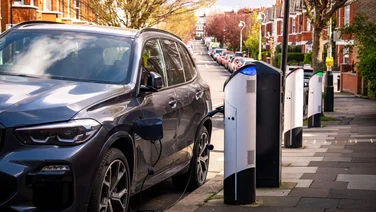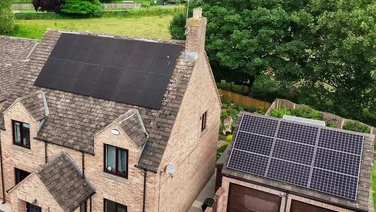We receive a small fee from trusted installers when you request a quote through our site. This helps us keep our content independent, well-researched and up to date – Learn more
- Twenty-two per cent of homes in the UK have suffered storm damage in the past five years
- Having an EPS on your solar battery can overcome power cuts
- Weather-related Insurance claims reached £226m in the first quarter of 2025
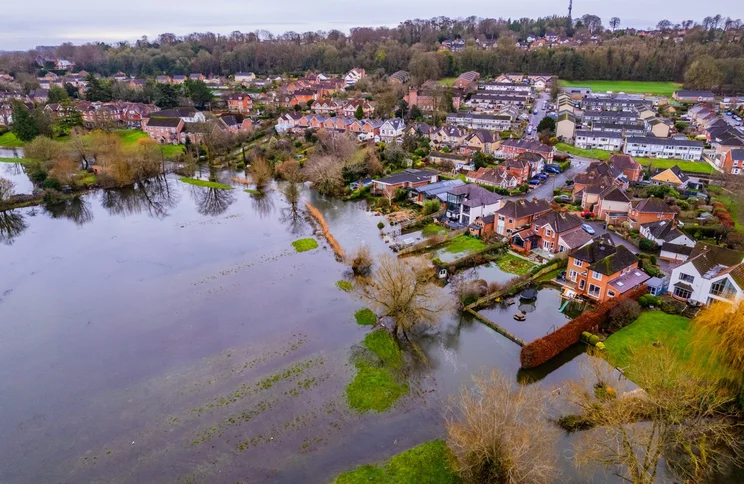
Households need to prepare for power cuts after the Met Office warned that the UK is set to be hit by several unusually intense storms this winter – and home owners should consider getting a solar battery to make sure their appliances continue to run should the grid fail.
The warning comes amid forecasts that severe storms are set to happen more often due to the effects of climate change, which has already seen weather-related home insurance damage claims increase by 28% between 2022 and 2024, hitting £585m. That figure on its own is an increase from the £573m in 2023.
According to the Met Office, not only will the storms this winter be more severe, they will hit the UK earlier than usual, and they will also become more frequent – they’re set to be every three years rather than once a decade.
There are plenty of things you can do to prepare for a heavy storm. Landlord insurance experts, Alan Boswell Group, recommend starting with emergency planning, preparing a storm kit, planning escape routes and monitoring weather warnings, as well as having adequate insurance and the right documentation.
On top of that, you should also really consider getting a solar battery, as this will help you keep home appliances running in the event of a power cut.
Can a solar battery help during a power cut?
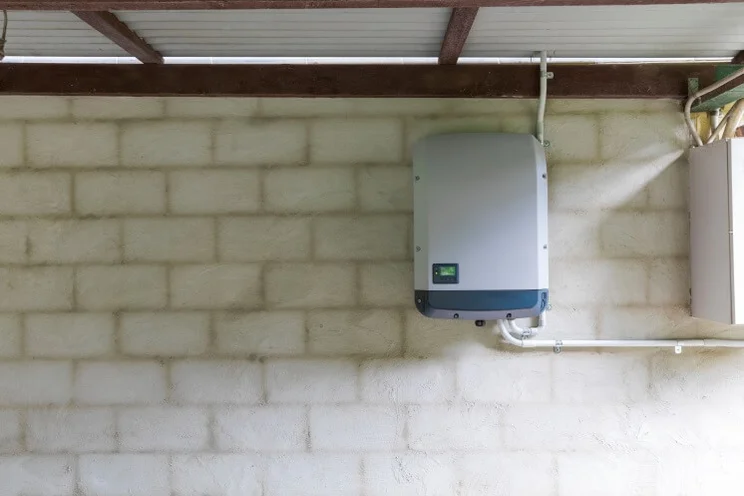
Yes, absolutely a solar battery can help during a power cut because it gives you power when you’re cut off from the grid, as long as it has an Emergency Power Supply (EPS) feature.
Solar batteries store surplus energy generated by solar panels. You can either sell this back to the grid using the Smart Export Guarantee or keep it to use when your solar panels aren’t generating energy, such as at night or in the event of a power cut.
If you’re thinking about getting a solar battery, have a look at our solar battery costs page.
Without an EPS you will still be able to use the energy stored in your battery, but only if it is connected to the grid. If there is a power cut your battery will go offline just like everything else because the solar inverter in your system will shut down as a safety precaution.
However, an EPS will isolate your system from the grid during a power cut, which means it can send electricity directly to specific circuits in your home safely. In a sense, it creates something of an independent mini-grid that only sends electricity to your home.
Installing an EPS comes at a cost and if you live in the UK it probably hasn’t been worth the expense until now, but in light of the Met Office’s warnings about severe storms and power cuts, it’s worth looking into getting a solar battery with an EPS.
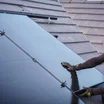
Get free solar panel quotes
Answer a few quick questions, and our trusted installers will send you bespoke solar panel quotes – for free.
What else can I do to prepare my home for severe storms?
To prepare your home, you should check the roof for loose or broken tiles and improve seals around window and door frames. Heath Alexander-Bew, director, Alan Boswell Group, said that weak or poorly sealed windows and doors are often the first points where water enters a home during storms.
“Beyond causing interior damage, they can compromise the building’s structural integrity under high wind pressure, making early reinforcement essential,” he said.
Alan Boswell Group also mentions flood defences, including raising sockets, meters, and boilers above the likely flood level, and using flood-resistant materials for floors and walls where possible. However, the responsibility to protect households from flooding also falls on the government to invest in protection for high-risk areas.
Alexander-Bew added that flooding can devastate homes and possessions. He also said that proper defences dramatically reduce repair costs and insurance claims, and in high-risk areas, these measures are essential for long-term protection.
He also warns that “flying debris is one of the most-common causes of secondary damage during storms, and that securing or removing objects outside your home can prevent significant property damage, and reduce risks to family members”.
How serious is the threat from storms in the UK?
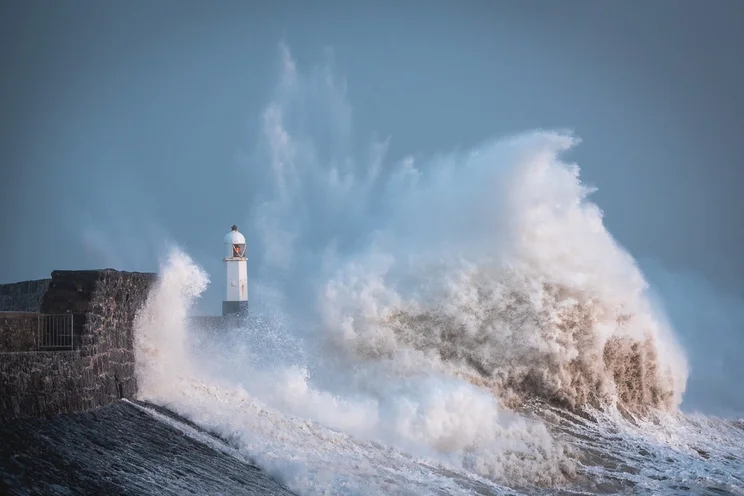
In the past few years storms in the UK have become far more serious. Reports suggest that 22% of homes in the UK have suffered from storm damage since 2020, and between 2020-2024, 20% of home insurance claims were related to storm damage.
According to insurance company Aviva, 40% of UK homes have experienced some kind of extreme weather impact in the last five years.
According to Google Trends, UK searches for ‘what to do in a storm’ increased by 733% in the week commencing 13 October, and ‘storm proofing’ related searches by 245%.
We’ve already spoken about the financial impact – with damage claims being £585 million in 2024 – and according to Insurance Age claims relating to weather hit £226m in the first quarter of 2025, which is the first time they have surpassed £200m in a single quarter.
In the past decade, the UK has seen an 18% rise in named storms when compared to the 10-year average. The 2023 – 2024 storm season had double the usual number of storms, with the Met reporting that today’s rainfall is 20% heavier than pre-industrial levels.
In England, flood alerts increased by 32.4% between 2023 – 2024, rising from 5,500 alerts to 7,500. Winter 2024 holds a record for the number of flood warnings, with 4,858 across the UK between January and April.

Get free solar panel quotes
Answer a few quick questions, and our trusted installers will send you bespoke solar panel quotes – for free.


